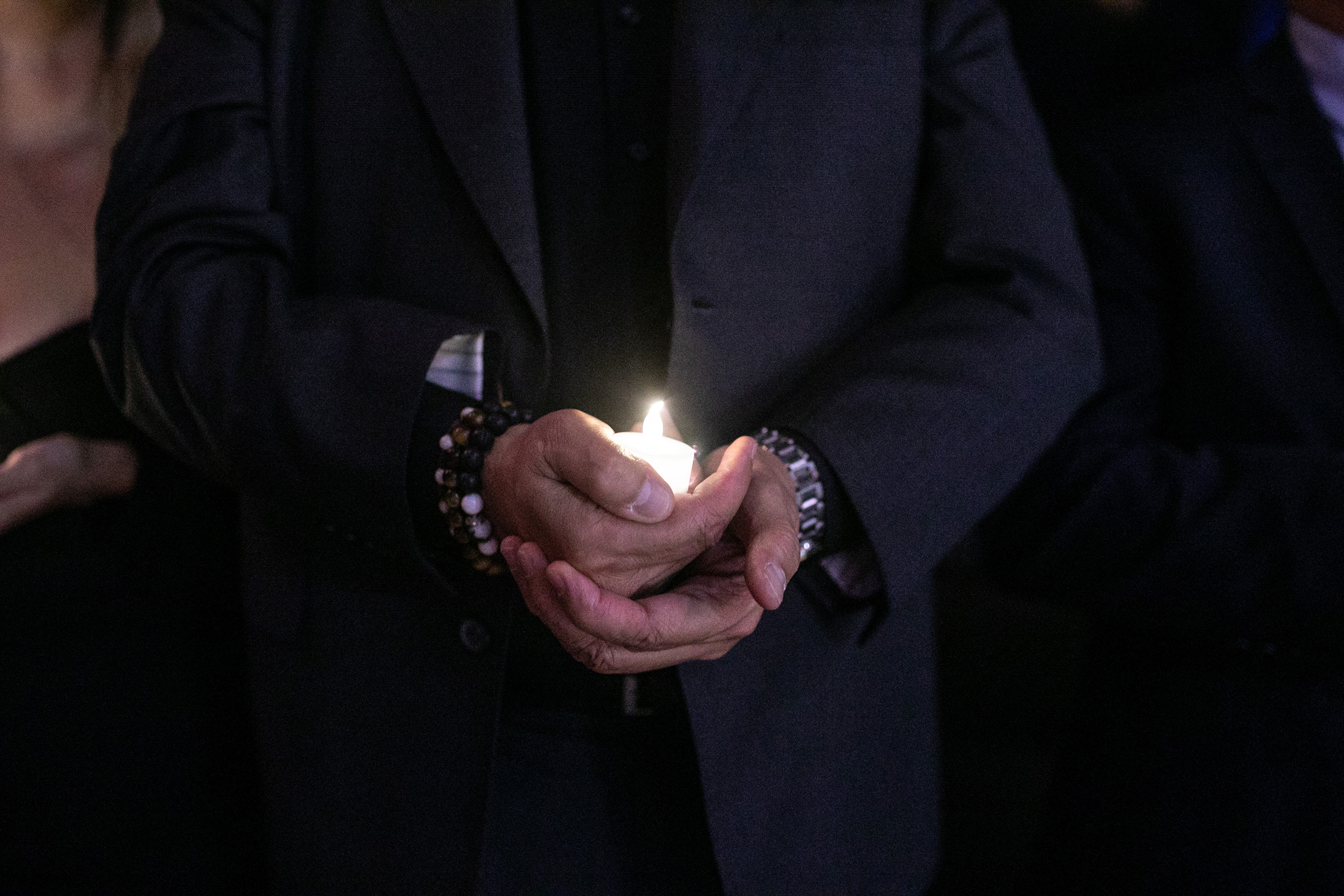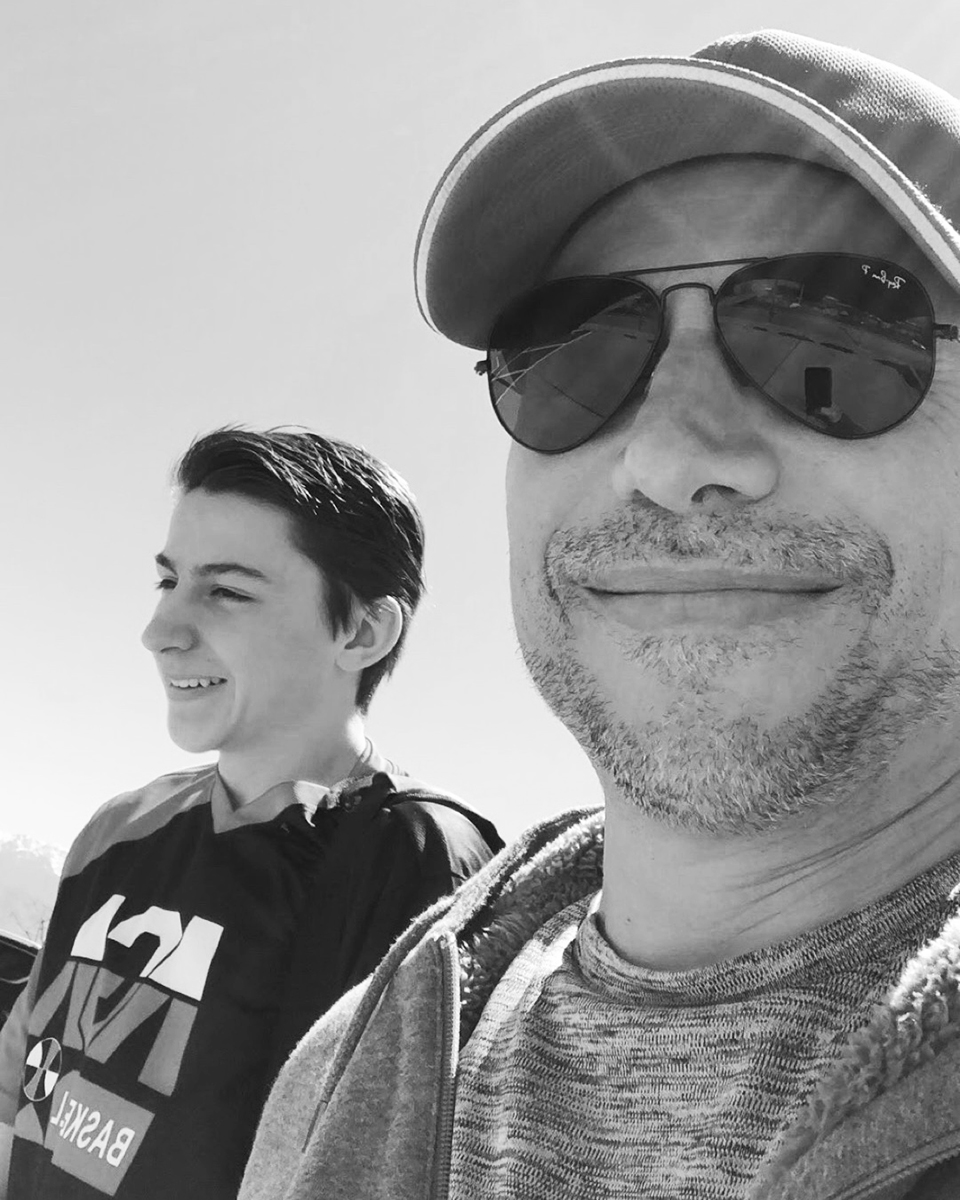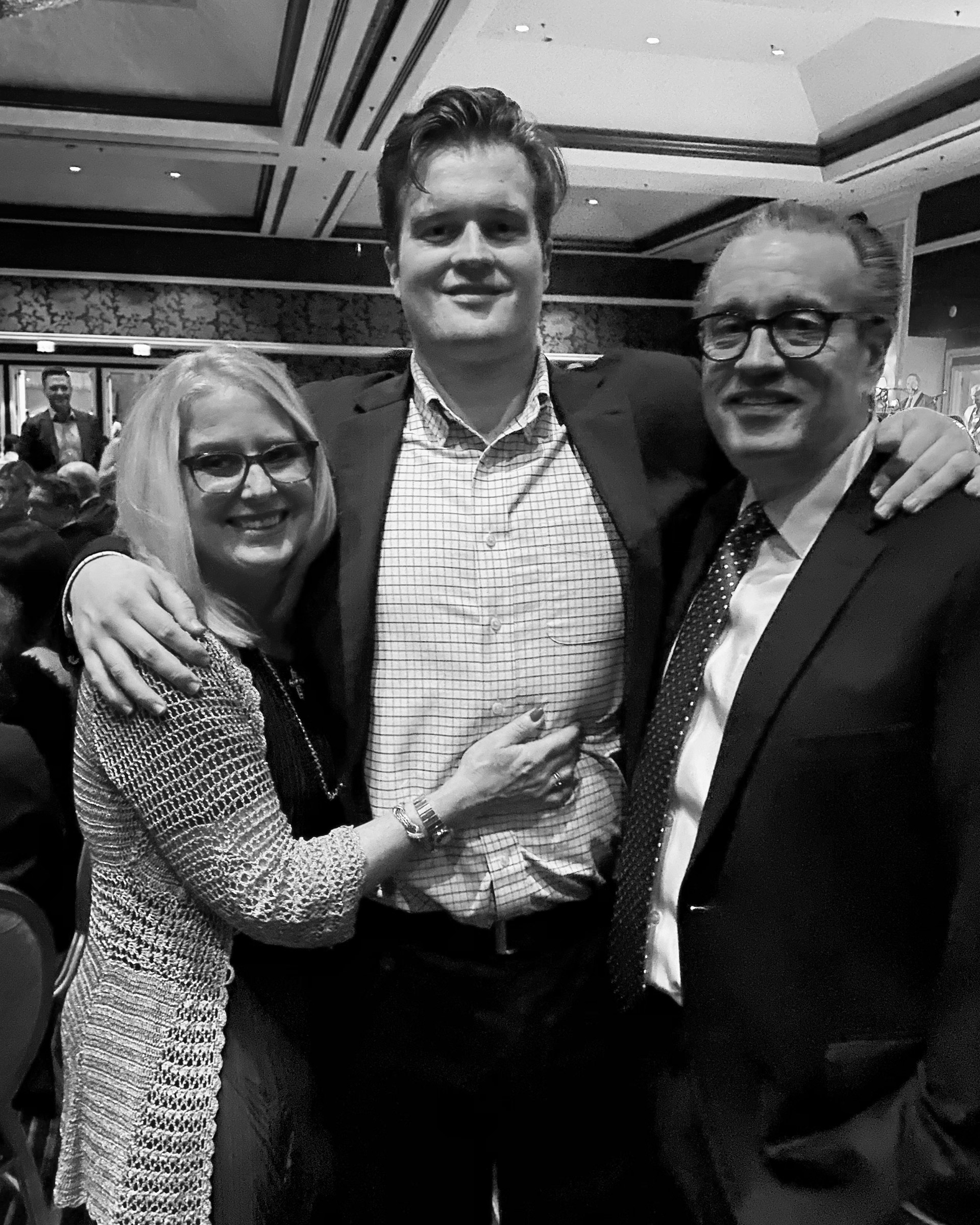
Gerchow is the CEO and co-founder of the XFoundation, along with his daughter Madison.
We’ve all seen and heard the headlines on this full-blown epidemic in our country, and we’ve heard cries from all sides of the political spectrum about who is to blame. But, as three grieving dads who lost their children from fentanyl poisoning, we know the truth about illicit fentanyl: it can affect each and every one of us when we least expect it. There is a massive education gap around this issue, and it is important to not only share our stories, but also to share the facts about fentanyl that can better inform all of us, especially the precious young people in all our lives.

In April 2021, Dean and his wife Indre lost their son Peter to this deadly epidemic. Peter was 22 years old, just five weeks from his college graduation, and had recently accepted a job offer in Denver. On a Monday evening, Peter stayed home to study rather than joining his friends to watch the NCAA basketball championship game. Late that evening, Peter took a single pill he believed was a “safe” prescription medication. In reality, Peter was poisoned by a fake pill made with fentanyl. With Peter as their inspiration, Dean and Indre have been speaking to young people to give them accurate information about this crisis and, hopefully, save lives.

On March 12, 2021, George lost his 17-year-old son, Xavier (X) to fentanyl poisoning. After a day of lifting weights and playing basketball, X was given half a pill that looked like Percocet but turned out to be 99% fentanyl and 1% cocaine. Fake street pills look exactly like legitimate prescription drugs, making it nearly impossible to tell what is actually poison. Since X’s passing, his family has made it their life’s mission to try to prevent anyone else from feeling this kind of pain, starting with their own community in Colorado.
Read More: What to Know About ‘Rainbow Fentanyl’ and Its Risks for Kids

Ed and his wife Mary lost their son Charlie to this crisis when he was poisoned by a fake pill made with fentanyl on May 14, 2020. A college senior like Peter, Charlie was waiting for a telephone job interview on that Thursday afternoon when he took the pill he was told was a Percocet. Charlie died quietly in his bed in a house full of roommates who assumed he was napping. He was 22. Ed and Mary formed the nonprofit Song for Charlie in his honor, and now devote their time to creating and distributing educational resources for families about the risks associated with drug use and self-medication in the age of fentanyl and other synthetics.
Often consumed unknowingly, illicit fentanyl is driving the recent increase in U.S. overdose deaths. It is being used to make fake prescription pills, “fentapills,” and is also found in common street drugs like cocaine, MDMA, and heroin. Fake pills have been found in all 50 states and are the main reason fentanyl-involved deaths are growing fastest with young people. We should all assume that any prescription pill we see online is fake, including Oxy, Percocet, Adderall, and Xanax, and we should install updated drug-education programs in our schools as part of a multipronged effort to reduce drug harms.
In past generations, experimentation with drugs came with fewer penalties. A high school student could try a pain reliever, or a college student could take an Adderall from a friend, and while it wasn’t without risk, it was unlikely to have serious immediate consequences. Today, with hundreds of millions of fentapills on the streets and deceptively marketed on social media, our kids are exposed to illicit fentanyl without their knowledge, putting them at extreme risk of accidental poisoning. We must diligently inform young people, their parents, and families that self-medication is not safe and carries a risk of death from taking one pill just one time, something that didn’t exist in the same way for young people in the past. In 2021, fentanyl was involved in 77% of adolescent overdose deaths, while heroin was involved in less than 3%.
We must acknowledge the underlying mental health challenges that lead some kids to seek relief in prescription pills. Young people today are under enormous pressure caused, at least in part, by the constant barrage of information coming at them from social media and the internet. They are familiar with prescription pills like Xanax, Oxy, and Adderall, and taking and sharing pills, as harmful as that can be, has become somewhat normalized for many young people. This creates the demand that drug traffickers meet with fentapills.
Read More: Xylazine, a Dangerous Veterinary Tranquilizer, Is Showing Us the Future of the Overdose Crisis
The fentanyl crisis has caused drug deaths to skyrocket across the continuum of use – expanding the danger zone beyond long-term, habitual users to include first-time experimenters. All victims deserve our compassion, whether they died from an overdose after years of struggle or were poisoned by a deceptive dealer. No family should feel the pain caused by the stigma around drug use. The fentanyl crisis crystalizes the fact that every family is at risk, and victim blaming is hurtful and counterproductive.
In a sense, young people are dying from a lack of information. Many still don’t realize that the pills they see on social media or at a party are likely fakes made with illicit fentanyl. This drug landscape is like a minefield, where your next step could be your last. The good news is that the young people we’ve talked to are incredibly receptive to learning the facts about fake pills and fentanyl. They want to protect themselves and protect their friends. That is why it’s crucial to talk about it without judgment.
On this National Fentanyl Awareness Day, we tell our stories to raise awareness about this urgent national problem that isn’t a left, right, or center issue; it is a human issue. As regular citizens, we can’t stop these pills from being created, but we can do something absolutely critical to start to regain some control: we can commit to education and demand reduction, working together to ensure that young people have the knowledge and tools they need to keep themselves safe from drugs that could contain fentanyl.
More Must-Reads From TIME
- The 100 Most Influential People of 2024
- Coco Gauff Is Playing for Herself Now
- Scenes From Pro-Palestinian Encampments Across U.S. Universities
- 6 Compliments That Land Every Time
- If You're Dating Right Now , You're Brave: Column
- The AI That Could Heal a Divided Internet
- Fallout Is a Brilliant Model for the Future of Video Game Adaptations
- Want Weekly Recs on What to Watch, Read, and More? Sign Up for Worth Your Time
Contact us at letters@time.com